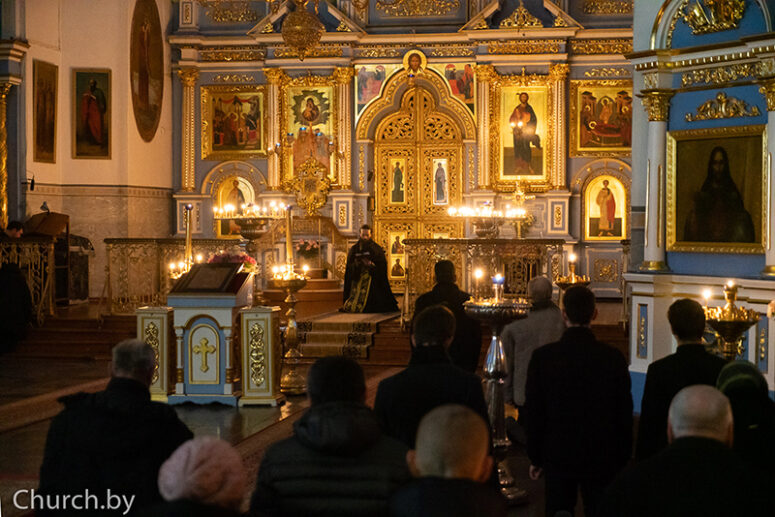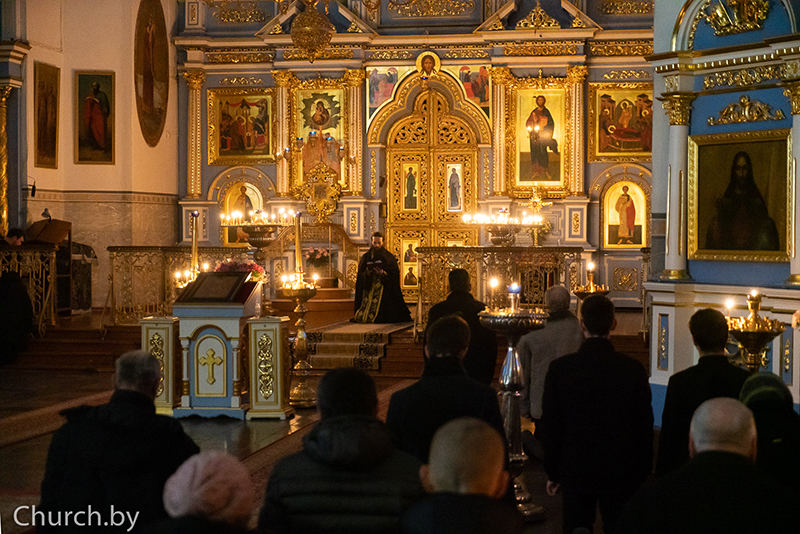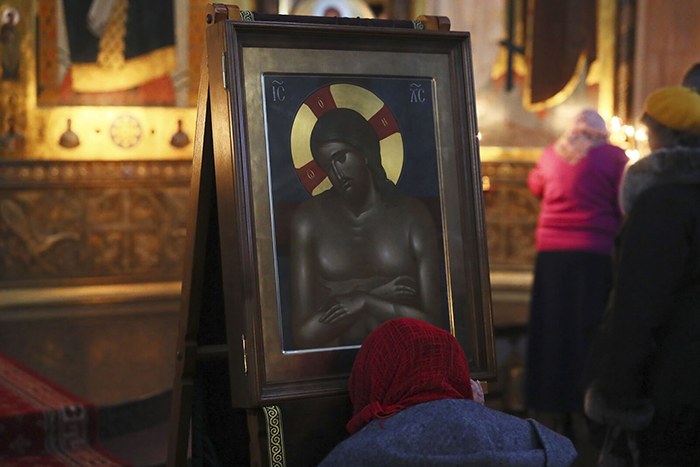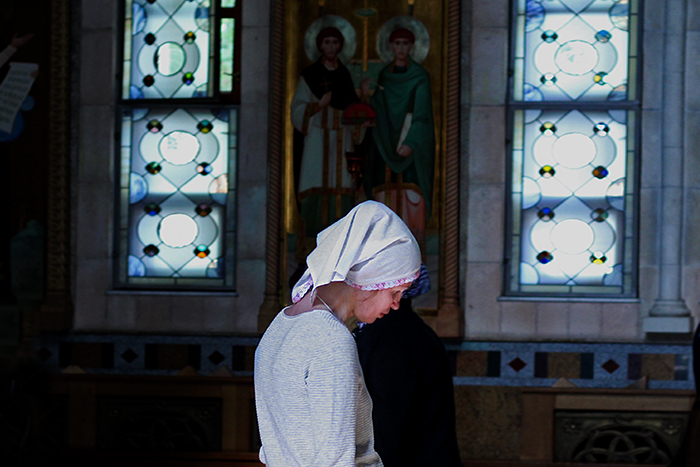
Should a person with health problems be forcing himself to make bows?
It is hardly prayer that a person thinks of when he is trying to catch his breath and overcome dizziness after performing another set of bows. Rather, his thoughts are about not breaking the silence, or not falling over. This is why saints teach to replace bows with the Jesus prayer. In doing so, we replace one ascetic exercise with another, in order to humble ourselves and feel reverence and veneration towards the Lord. This is the focus point of all such practices.
Venerable Macarius of Optina writes that it is not the kneeling that will be accounted for at the Last Judgement, but our humility, patience and the love that we show one another. We often fail to understand that fasting, bowing, and vigilance are not the end, but only the means. A Christian seeks to do a certain number of bows, not to lose weight, but to humble himself before God. Making bows in the morning may help a person greet his relatives with joy rather than anger.
Sometimes it happens that performing bows does not bring a person to humility, while someone else succeeds at humbling himself without bowing. Which of them is closer to God? The answer is obvious. We read it in the Bible during the Week of the Publican and the Pharisee preceding the great Lent. The publican left more justified than the Pharisee. He did not kneel, but prayed tearfully. So, is not our position during prayer that matters most, but its essence. Let us remember therefore that bows are needed as one of the means to help us enter a spiritual state, which leads us to humility before God.
Why Are There So Many Bows during Lent?
First, there are more services during Lent than during ordinary times. Second, people usually go to church on Sundays, the day when full earth-low bows are less common. If we observed how bowing is performed during weekday services we would notice that it is in fact distributed rather evenly throughout the liturgical year, and the changes related to Lent are not sudden.
Great Lent is a special time for Christians. The physical means that we use during this time to summon our spiritual strength can be compared to the way athletes intensify training before competitions. Athletes leave their homes and devote all their time to training while we also resort to practices that, if used correctly, stimulate our spiritual growth.
Does Christ Count our Bows?
One way or another, the number of bows should not alienate Christians from worship. It is Christ who brings us to church through His love, mercy and forgiveness. Christ knows our weaknesses. He is kind and will not count the number of our bows, but He will look at the condition of our heart. He sees our attitude towards people after we leave the temple humbled or irritated. The main thing that we need to learn is the goal of our spiritual path towards Christ, which ultimately consists in deification. “Be imitators of me, as I am of Christ.” says the apostle (1 Cor. 11: 1). This means that we need to become kind, compassionate, forgiving, long-suffering, merciful, not irritable or self-seeking. Bows are very helpful in achieving these goals.
Outside the Temple
I would like to draw your attention to one more important point. We often see small churches so filled with people during lenten services that it is difficult to literally raise a hand there, let alone bowing down. In this case bows can be performed at home, as well as before or after service. There is nothing wrong with that. Church singers are also allowed not to bow, because bowing may interfere with their breathing and make it difficult for them to keep the required rhythm and tempo of singing. A weak or disabled person can use a chair or some other piece of furniture to kneel down at home. There may not be such things in the temple, and this is another reason to bow at home. I repeat, there is nothing sinful in this. The Lord sees everything. There is also no need to perform bows, venerate icons and make the sign of the cross exaggeratedly and beyond measure. Divine service is the time for us to praise the Lord with one mouth and one heart, and not bow down whenever we please. There should be decency in everything.
Don’t be embarrassed if you can’t bow down. Try to remember that there are other ways to humble yourself before God. The tax collector found this way in the ability to consider himself the first sinner. The Lord, knowing our weaknesses, will always give us an opportunity to humble ourselves. Try to keep peace in everything, not to be irritated, not to offend. If you do kneel down, do not condemn those who do not. We are all different, but we are all united by our church and our Christ. The main thing is to humble ourselves and not be exalted. If we succeed in that, we will always be with the Lord.
Translated by The Catalogue of Good Deeds
Source: http://gorlovka-eparhia.com.ua/pochemu-velikim-postom-sovershayut-stolko-poklonov/





Thank you, Holy Father.